“Your sufferings, accepted and borne with unshakeable faith, when joined to those of Christ take on extraordinary value for the life of the Church and the good of humanity”. (Message of the Holy Father Pope John Paul II for the First Annual World Day of the Sick, 5)
As the mother of Christ, one of Mary’s many titles is “Our Lady of Sorrows”. Fittingly, the name “Mary” has roots in the Hebrew word “marah” meaning “bitterness”. Commonly depicted in art with a sword piercing her heart, today’s Gospel introduces us to the first of Mary’s Seven Sorrows: “And you yourself a sword will pierce”. The Holy Family went through many trials together but Mary in particular endured, steadfast in her fiat and never once wavered in her devotion to God, although she was exposed to so many trials.
Saint John Paul II declared: “[T]he Blessed Virgin advanced in her pilgrimage of faith, and faithfully persevered in her union with her Son unto the cross… uniting herself with a maternal heart with His sacrifice” (Lumen Gentium, 58). In her apparitions as Our Lady of Kibeho in the 1980’s in Rwanda, Mary asked that we pray the Chaplet of the Seven Sorrows for repentance, and also noted that we must “bear our sufferings every day” if we want to be with Christ in Heaven. If we imitate Mary’s faith, we too will survive whatever wounds this hard world inflicts on us and one day rejoice with God’s Holy Family. What suffering in your life is God using for His glory?
“Vuestros sufrimientos, acogidos y sostenidos por una fe inquebrantable, unidos a los de Cristo, adquieren un valor extraordinario para la vida de la Iglesia y para el bien de la humanidad”. (Mensaje del Santo Padre Juan Pablo II Para la I Jornada Mundial del Enfermo, 5)
Como madre de Cristo, uno de los muchos títulos de María es “Nuestra Señora de los Dolores”. Apropiadamente, el nombre “María” tiene raíces en la palabra hebrea “marah” que significa “amargura”. Comúnmente representado en el arte con una espada que atraviesa su corazón, el Evangelio de hoy nos presenta el primero de los Siete Dolores de María: “Y a ti, una espada te atravesará el alma”. La Sagrada Familia pasó juntos por muchas pruebas juntos pero María en particular perseveró, firme en su fiat y nunca vaciló en su devoción a Dios, aunque estuvo expuesta a tantas pruebas.
San Juan Pablo II declaró: “Así avanzó también la Santísima Virgen en la peregrinación de la fe, y mantuvo fielmente su unión con el Hijo hasta la cruz… asociándose con entrañas de madre a su sacrificio” (Lumen Gentium, 58). En sus apariciones como Nuestra Señora de Kibeho en los años 1980 en Ruanda, María pidió que rezáramos la Coronilla de los Siete Dolores por el arrepentimiento, y también señaló que debemos “soportar nuestros sufrimientos todos los días” si queremos estar con Cristo en el Cielo. Si imitamos la fe de María, también nosotros sobreviviremos las heridas que nos inflija este mundo duro y un día gozaremos con la Sagrada Familia de Dios. ¿Qué sufrimiento hay en tu vida que Dios está utilizando para Su gloria?
 Dr. Alexis Dallara-Marsh is a board-certified neurologist who practices in Bergen County, NJ. She is a wife to her best friend, Akeem, and a mother of two little ones on Earth and two others in heaven above.
Dr. Alexis Dallara-Marsh is a board-certified neurologist who practices in Bergen County, NJ. She is a wife to her best friend, Akeem, and a mother of two little ones on Earth and two others in heaven above.
Feature Image Credit: Chistopher Rafael Ramirez najera, cathopic.com/photo/12866-virgen-de-dolores-iglesia-de-santa-cecilia
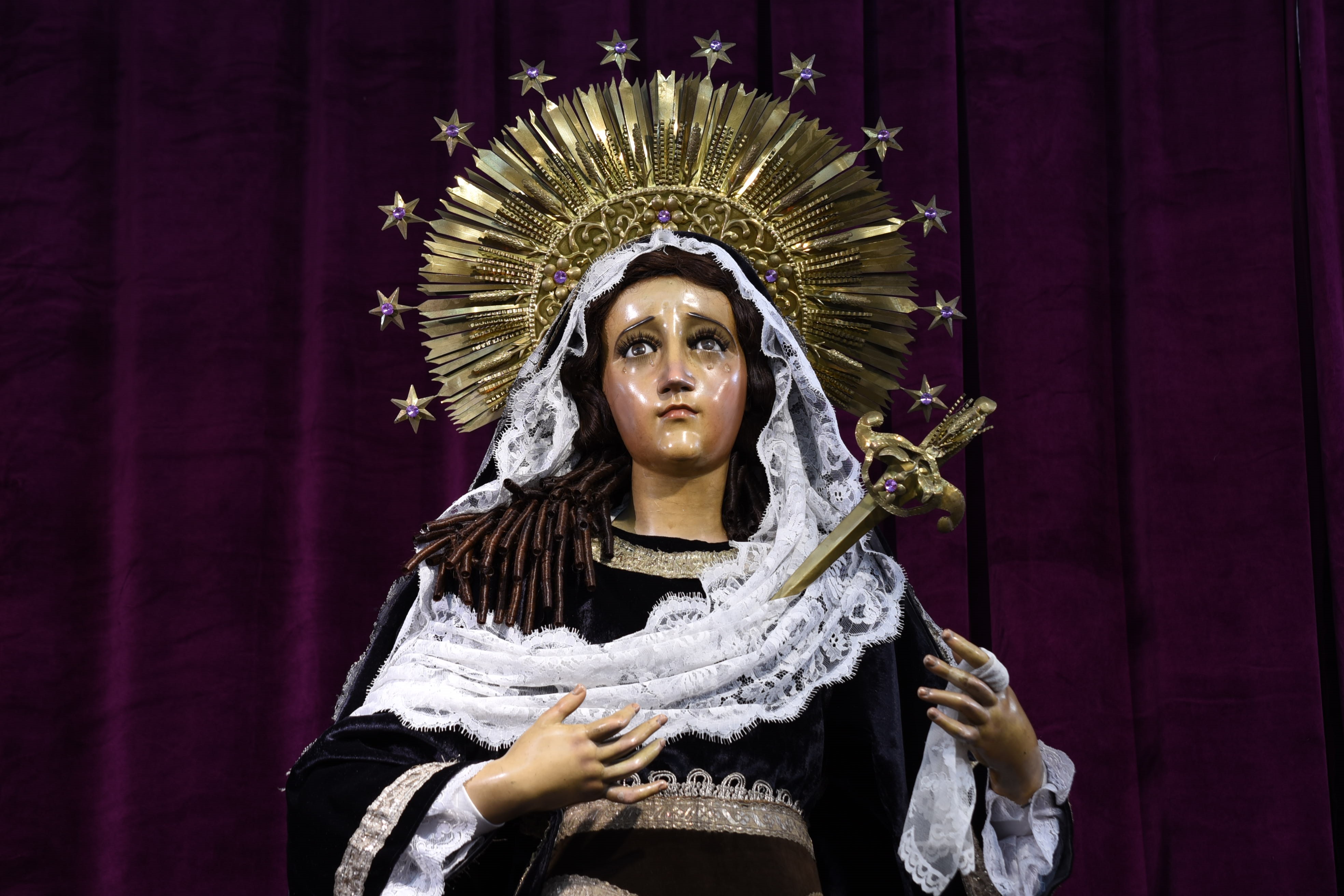
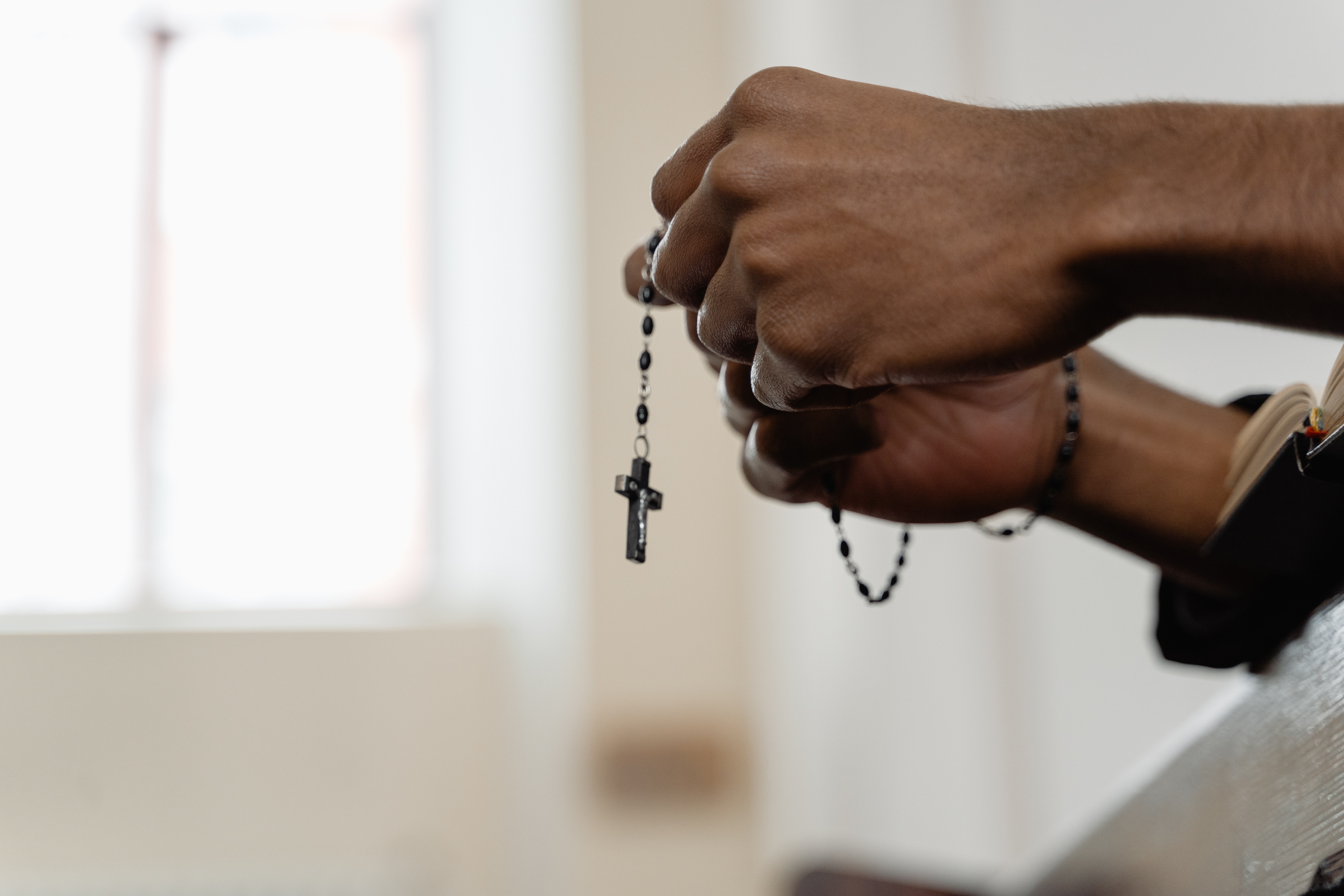
 Kate Taliaferro is an Air Force wife and mother. She is blessed to be able to homeschool, bake bread and fold endless piles of laundry. When not planning a school day, writing a blog post or cooking pasta, Kate can be found curled up with a book or working with some kind of fiber craft. Kate blogs at
Kate Taliaferro is an Air Force wife and mother. She is blessed to be able to homeschool, bake bread and fold endless piles of laundry. When not planning a school day, writing a blog post or cooking pasta, Kate can be found curled up with a book or working with some kind of fiber craft. Kate blogs at 
 David Dashiell is a freelance author and editor in Nashville, Tennessee. He has a master’s degree in theology from Franciscan University, and is the editor of the anthology
David Dashiell is a freelance author and editor in Nashville, Tennessee. He has a master’s degree in theology from Franciscan University, and is the editor of the anthology 
 Deacon Dan Schneider is a retired general manager of industrial distributors. He and his wife Vicki have been married for over 50 years. They are the parents of eight children and thirty grandchildren. He has a degree in Family Life Education from Spring Arbor University. He was ordained a Permanent Deacon in 2002. He has a passion for working with engaged and married couples and his main ministry has been preparing couples for marriage.
Deacon Dan Schneider is a retired general manager of industrial distributors. He and his wife Vicki have been married for over 50 years. They are the parents of eight children and thirty grandchildren. He has a degree in Family Life Education from Spring Arbor University. He was ordained a Permanent Deacon in 2002. He has a passion for working with engaged and married couples and his main ministry has been preparing couples for marriage.
 Merridith Frediani loves words and is delighted by good sentences. She also loves Lake Michigan, dahlias, the first sip of hot coffee in the morning, millennials, and playing Sheepshead with her husband and three kids. She writes for Catholic Mom, Diocesan.com, and her local Catholic Herald. Her first book Draw Close to Jesus: A Woman’s Guide to Adoration is available at Our Sunday Visitor and Amazon. You can learn more at
Merridith Frediani loves words and is delighted by good sentences. She also loves Lake Michigan, dahlias, the first sip of hot coffee in the morning, millennials, and playing Sheepshead with her husband and three kids. She writes for Catholic Mom, Diocesan.com, and her local Catholic Herald. Her first book Draw Close to Jesus: A Woman’s Guide to Adoration is available at Our Sunday Visitor and Amazon. You can learn more at 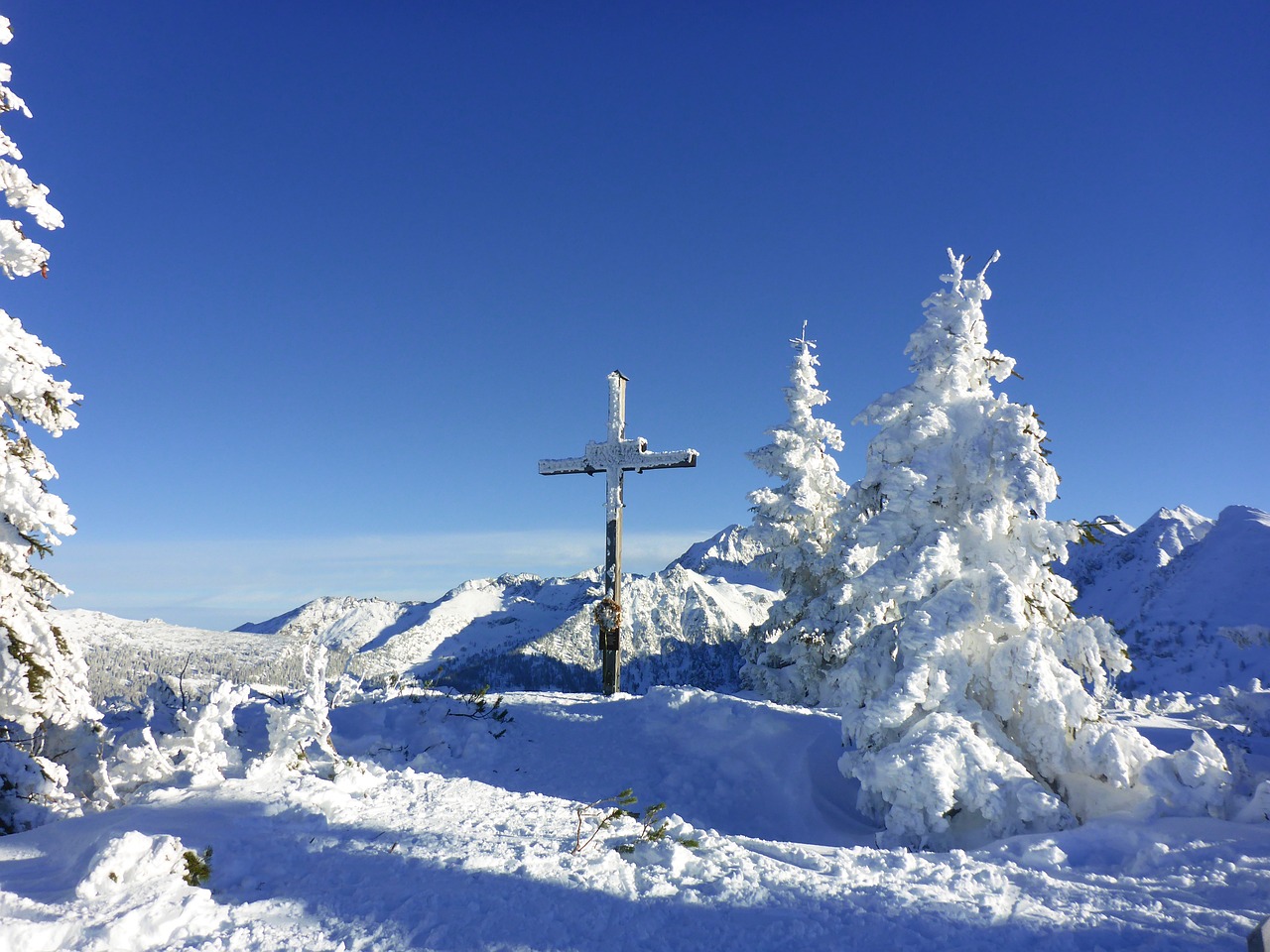
 Leslie Sholly is a Catholic, Southern wife and mother of five, living in her hometown, Knoxville, Tennessee. She graduated from Georgetown University with an English major and Theology minor. She blogs at
Leslie Sholly is a Catholic, Southern wife and mother of five, living in her hometown, Knoxville, Tennessee. She graduated from Georgetown University with an English major and Theology minor. She blogs at 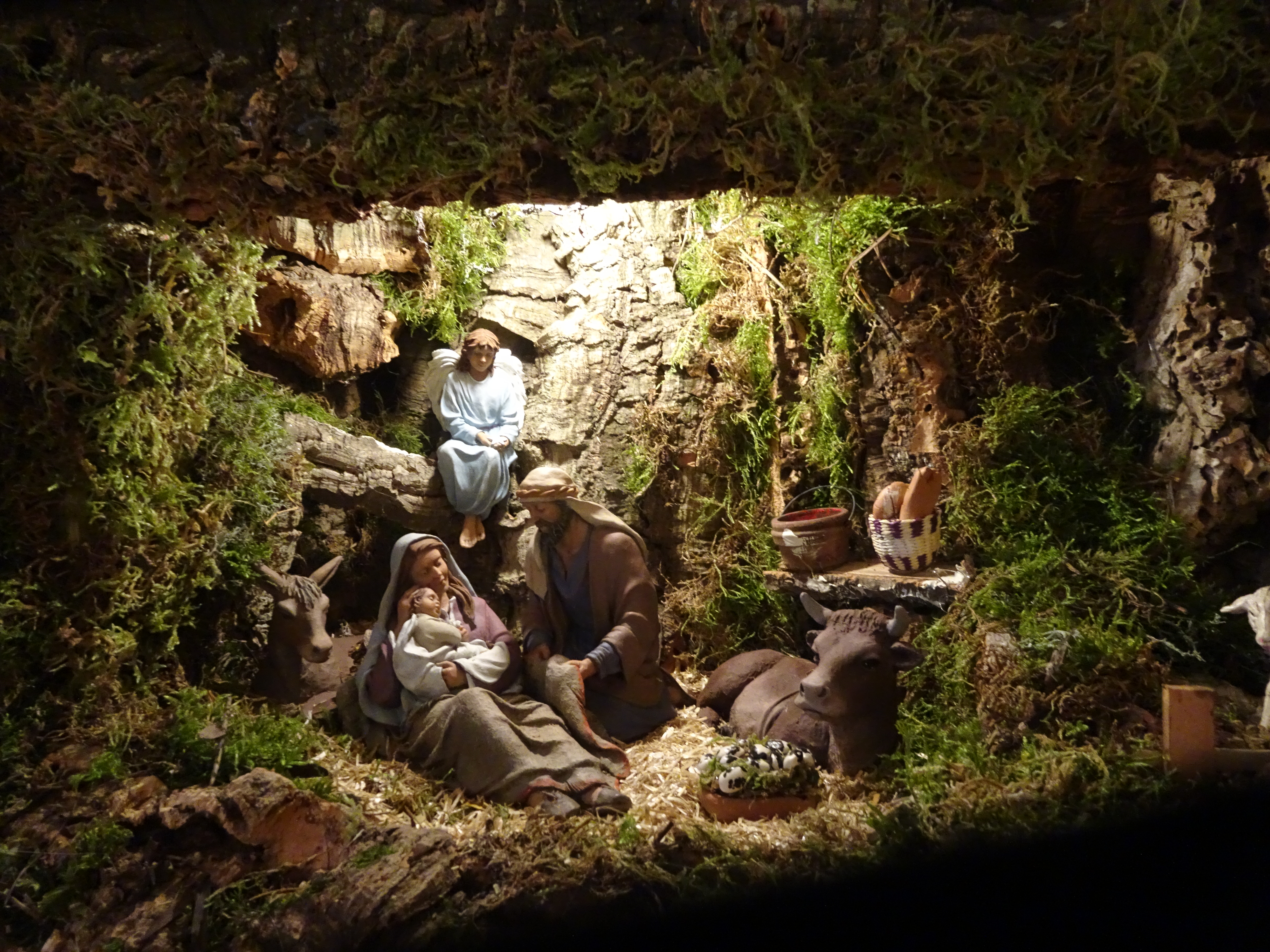
 Susan Ciancio has a BA in psychology and a BA in sociology from the University of Notre Dame, with an MA in liberal studies from Indiana University. For the past 19 years, she has worked as a professional editor and writer, editing both fiction and nonfiction books, magazine articles, blogs, educational lessons, professional materials and website content. Thirteen of those years have been in the pro-life sector. Currently Susan freelances and writes weekly for HLI, edits for American Life League, and is the executive editor of Celebrate Life Magazine. She also serves as executive editor for the Culture of Life Studies Program—an educational nonprofit program for K-12 students. You can reach her at
Susan Ciancio has a BA in psychology and a BA in sociology from the University of Notre Dame, with an MA in liberal studies from Indiana University. For the past 19 years, she has worked as a professional editor and writer, editing both fiction and nonfiction books, magazine articles, blogs, educational lessons, professional materials and website content. Thirteen of those years have been in the pro-life sector. Currently Susan freelances and writes weekly for HLI, edits for American Life League, and is the executive editor of Celebrate Life Magazine. She also serves as executive editor for the Culture of Life Studies Program—an educational nonprofit program for K-12 students. You can reach her at 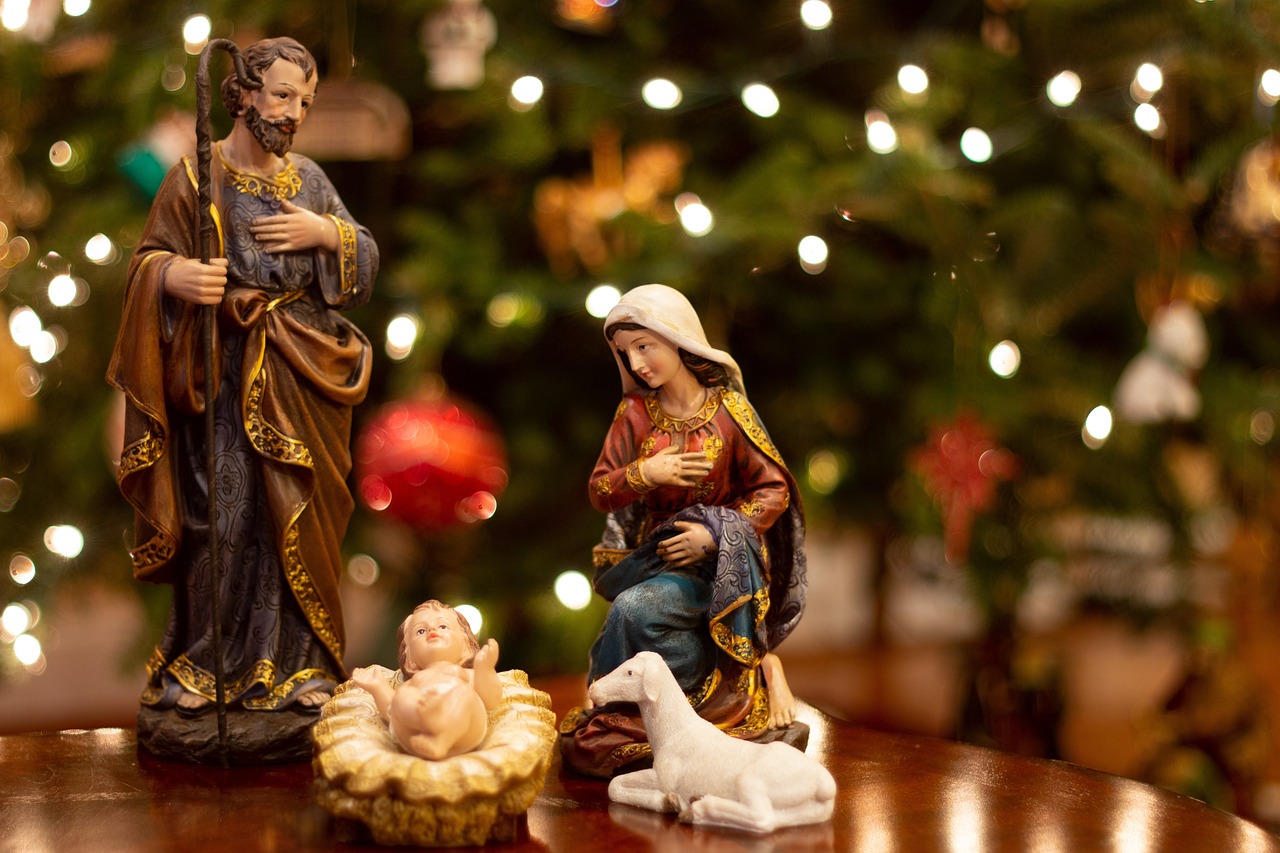

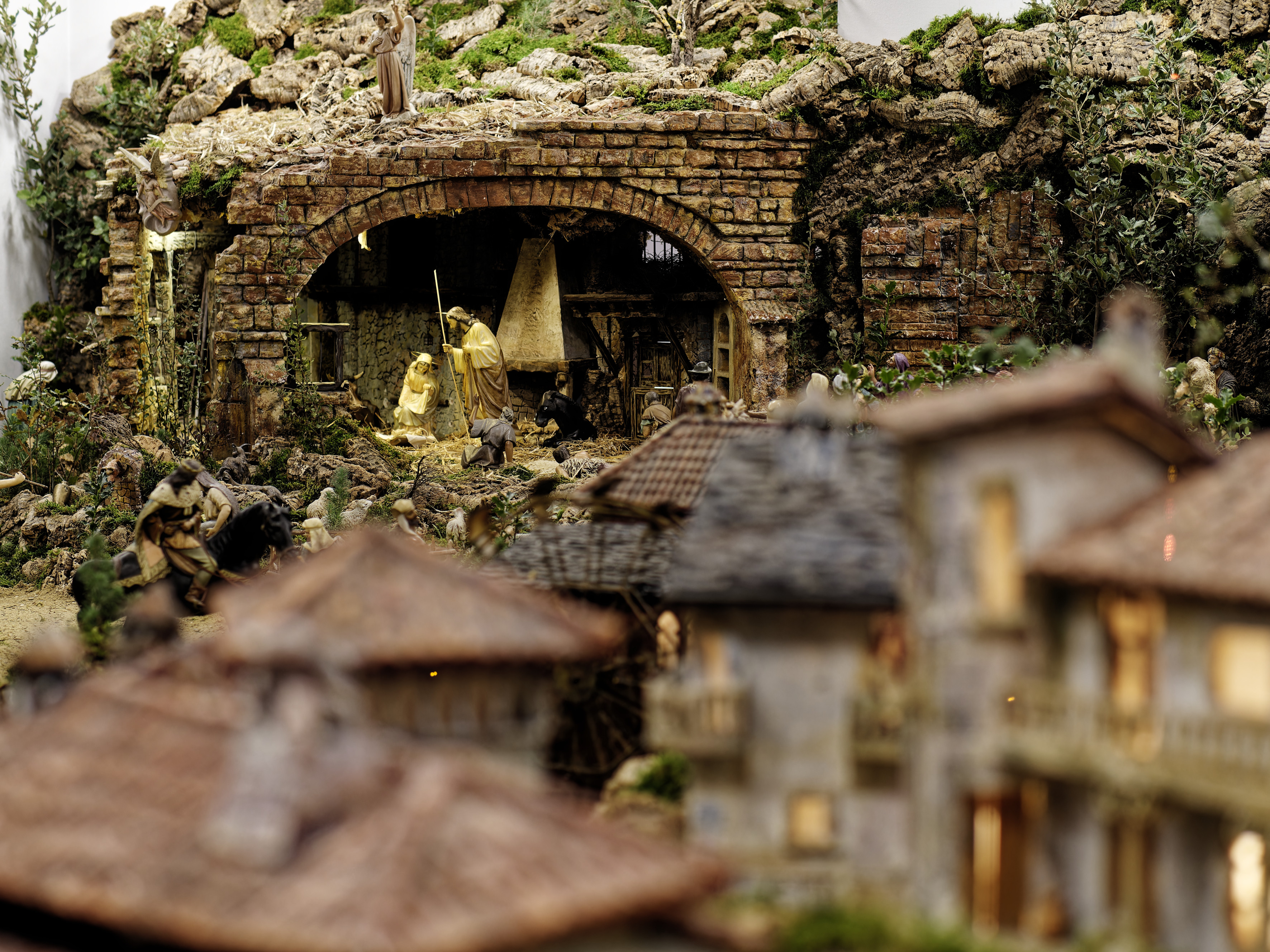
 Kathryn Mulderink, MA, is married to Robert, Station Manager for Holy Family Radio. Together they have seven children (including Father Rob), and seven grandchildren. She is President of the local community of Secular Discalced Carmelites and has published five books and many articles. Over the last 30 years, she has worked as a teacher, headmistress, catechist, Pastoral Associate, and DRE, and as a writer and voice talent for Catholic Radio. Currently, she serves the Church by writing and speaking, and by collaborating with various parishes and to lead others to encounter Christ and engage their faith. Her website is
Kathryn Mulderink, MA, is married to Robert, Station Manager for Holy Family Radio. Together they have seven children (including Father Rob), and seven grandchildren. She is President of the local community of Secular Discalced Carmelites and has published five books and many articles. Over the last 30 years, she has worked as a teacher, headmistress, catechist, Pastoral Associate, and DRE, and as a writer and voice talent for Catholic Radio. Currently, she serves the Church by writing and speaking, and by collaborating with various parishes and to lead others to encounter Christ and engage their faith. Her website is 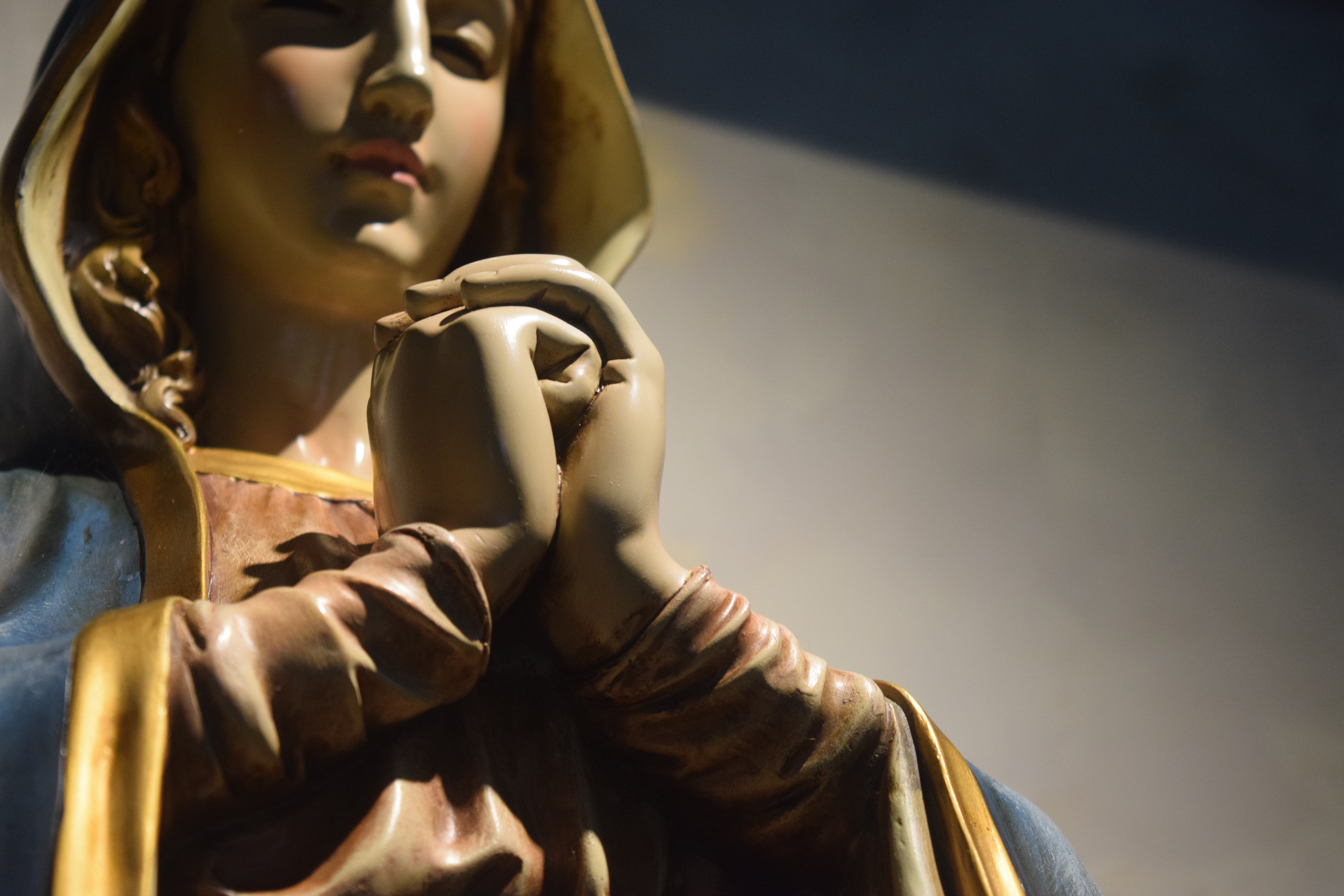
 Allison Gingras (
Allison Gingras ( 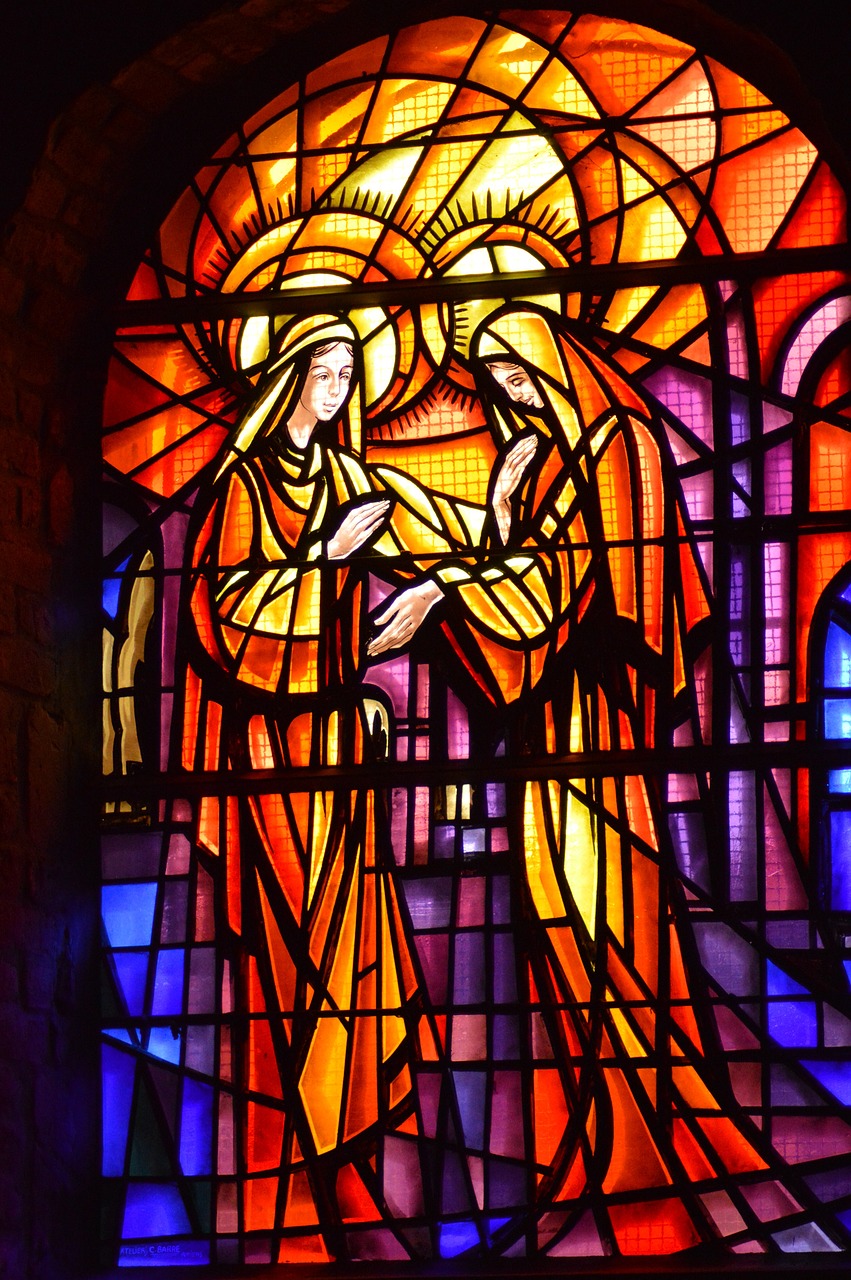
 J.M. Pallas has had a lifelong love of Scriptures. When she is not busy with her vocation as a wife and mother to her “1 Samuel 1” son, or her vocation as a public health educator, you may find her at her parish women’s bible study, affectionately known as “The Bible Chicks.”
J.M. Pallas has had a lifelong love of Scriptures. When she is not busy with her vocation as a wife and mother to her “1 Samuel 1” son, or her vocation as a public health educator, you may find her at her parish women’s bible study, affectionately known as “The Bible Chicks.”
 Christine Hanus currently lives in Upstate, NY. Though she enjoys writing and her work as a catechist, Christine is primarily a wife, mother, and more recently, grandmother!
Christine Hanus currently lives in Upstate, NY. Though she enjoys writing and her work as a catechist, Christine is primarily a wife, mother, and more recently, grandmother!